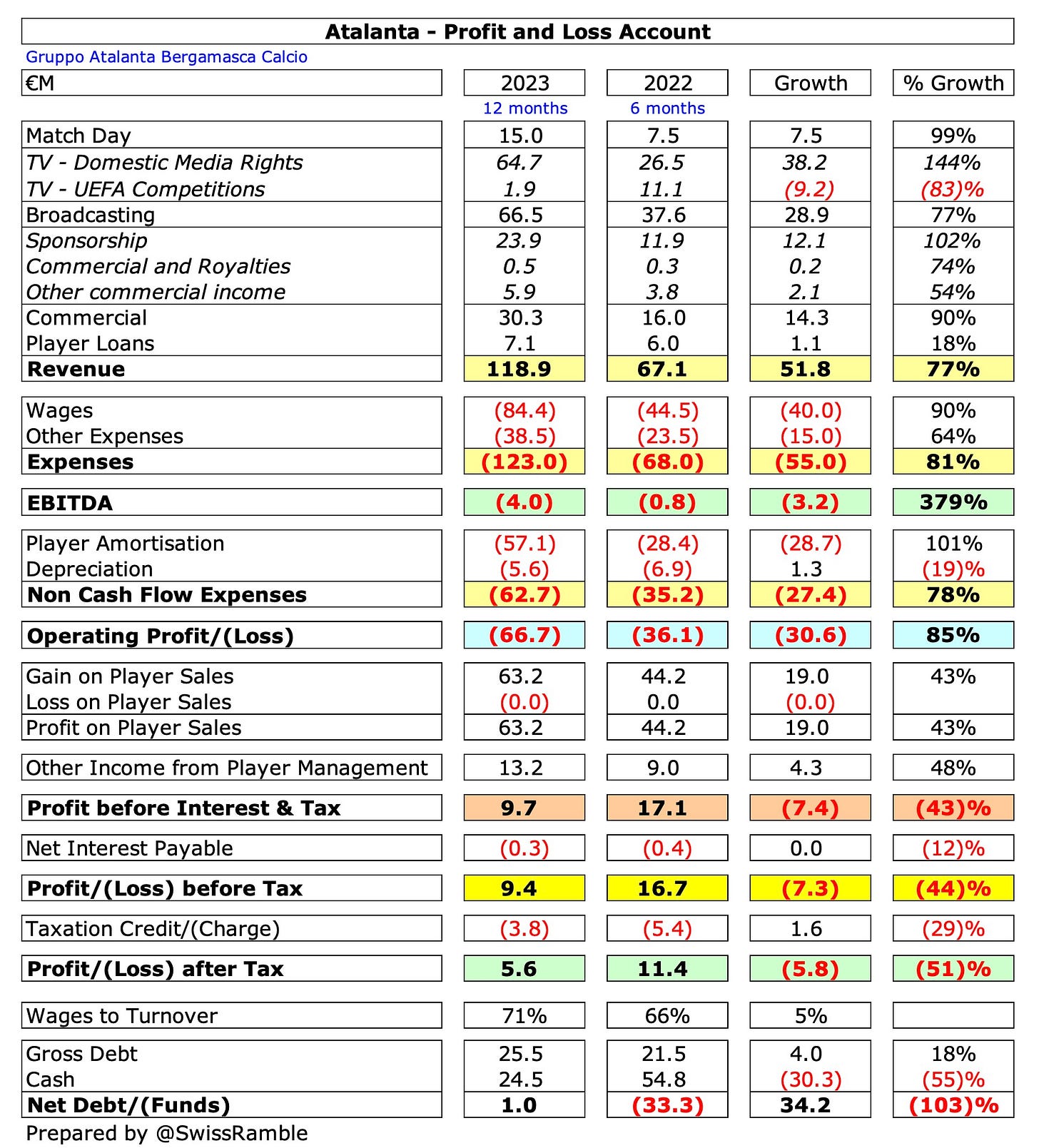This is turning out to be a fantastic season for Atalanta, who defeated Bayer Leverkusen 3-0 to win the Europa League, thanks to a glorious hat-trick by Ademola Lookman, to win their first trophy since 1963.
They could hardly be accused of enjoying an easy ride to this achievement, having overcome Sporting, Liverpool and Marseille on their way to the final, before inflicting the first defeat of the season on Leverkusen’s “invincibles”.
In addition, Atalanta reached the final of the Coppa Italia, though they were beaten by Juventus, and have also qualified for the Champions League. They will finish no lower than fourth in Serie A and could end up as high as third, depending on the results in the last round of matches.
This is no flash in the pan, as Atalanta have been punching well above their weight for a while now. As chairman Antonio Percassi said, “over the last ten years the club has delivered exceptional results, that perhaps no one would have expected from a so called provinciale.”
Their charismatic manager Gian Piero Gasperini was understandably proud after the victory in Dublin, “Winning with Atalanta is one of those footballing fairytales that rarely crop up. It gives scope for meritocracy: there is still scope for ideas and doesn’t have to come down to cold, hard money.”
This was a reference to Atalanta’s financial disadvantages compared to the elite clubs, which raises the question of exactly how has La Dea managed to prosper, while others have fallen by the wayside?
Let’s take a look at Atalanta’s most recent accounts from the 2022/23 season to better understand the club’s business model.
Profit/(Loss) 2022/23
Atalanta posted a €9.4m pre-tax profit in 2022/23, which was the eighth year in a row that they had been profitable.
Their revenue was only €119m, while expenses were €186m, leading to a hefty €67m operating loss. However, this was wiped out by €76m from player trading, split between €63m profit from player sales and €13m other income from player management.
Profit after tax was smaller at €5.6m after a €3.8m tax charge.
Even without the benefit of any income from UEFA competitions, Atalanta still managed to post a profit, which was pretty impressive.
Year-on-Year Comparison
As the previous accounts only covered six months, Atalanta also provided a comparison against a pro forma 12-month period, which showed that pre-tax profit sightly fell from €12.0m to €9.4m.
Keep reading with a 7-day free trial
Subscribe to The Swiss Ramble to keep reading this post and get 7 days of free access to the full post archives.





